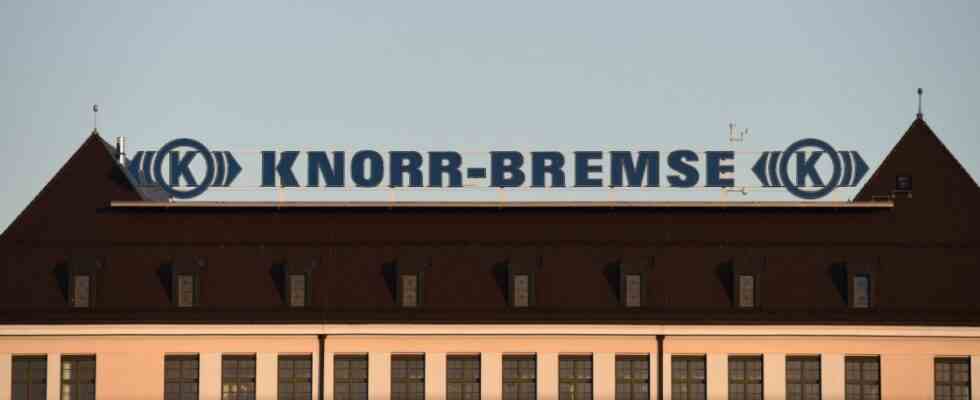Knorr- Bremse is in a leadership crisis, once again. Jan Mrosik, 57, is now the third CEO within three years. The question is whether it is really the staff or rather the system?
When the then owner of the vehicle supplier Knorr- Bremse, Heinz Hermann Thiele, became the head of the company’s supervisory board in April 2007, it marked something of a turning point for the Munich-based group. As the main shareholder, Thiele had managed the company for almost 22 years and was looking for a suitable successor. It turned out that this project was going to be anything but easy, which is why Knorr- Bremse had to keep looking for a boss. So now for the sixth time. It was just a little over 14 months for Jan Mrosik. He had previously been with Siemens for more than 20 years, which actually spoke for a certain continuity, and he had only presented good figures.
It was not thrown out, the company can be heard, Mrosik will leave the group “on the best of terms” at the end of April and immediately resign from the board. With Mrosik, it was probably dissatisfaction and differences in management about the further strategy, says an insider. Digitalization did not progress quickly enough for the electrical engineer and industrial engineer, one of the reasons why he took up the position – at Siemens he was most recently responsible for digital industries.
Too few crisis managers?
The group announcement shows what Mrosik may have been missing. In the requirement profile for the successor, the group attaches particular importance to “the rapid global change processes in the crisis-ridden development of the world economy and the enormous dynamics of the markets”. In other words: Mrosik was obviously not enough crisis manager. The fact that he may have underestimated the effects of the Ukraine war indicates this. He hadn’t seen any major impact on business a good two weeks ago, and last Monday he announced on the Linkedin platform that he was leaving a long-standing joint venture with the Russian truck manufacturer Kamaz.
It is unclear whether Klaus Mangold, who is still chairman of the supervisory board, is going to look for it himself, especially since the 78-year-old is giving up his post at the general meeting in May. He wanted to leave a year ago for reasons of age, but then stayed after Thiele’s death. His successor is said to be Reinhard Ploss, 66, who is still Infineon boss. In order to maintain continuity, Knorr- Bremse has prematurely extended CFO Franz Markus Weber’s contract by five years. He will also take on Mrosik’s duties until a successor is found.
The first boss after Thiele stayed the longest
“They’ll probably have to carve themselves one first,” jokes an insider, referring to the ideal CEO. After a long search, Thiele was able to present Raimund Klinkner, 41, the Gildemeister board member, for the first time in 2006. The logistics professor was at least allowed to fulfill his contract and left the group at the end of 2011 “by mutual agreement”. It didn’t help that the mechanical engineer drove the articulated lorry to the office every now and then to get a feel for the brakes.
Thiele then waited until mid-2013 before Michael Buscher, 47, was allowed to take the executive chair. The electrical engineer previously managed the Swiss machine tool group OC Oerlikon, previously gained experience at the locomotive manufacturer Bombardier and was already a member of the Knorr- Bremse Supervisory Board. In Thiele’s eyes, Buscher was also obviously a mistake, despite this expertise: After a year and a half, Buscher left again at the end of 2014, “for personal reasons,” as it is often confusingly put.
It took over: The former commercial vehicle board member Klaus Deller, 52. Deller almost had to leave in a hurry in 2019 after four years and four months, before he had successfully taken the group public. “The reason for Mr. Deller’s departure are different views of leadership and cooperation,” Knorr- Bremse said at the time, unusually openly. Half a year later, Bernd Eulitz, 53, who came from the gas manufacturer Linde, followed. “He has always proven that he sticks to his goals with a high level of assertiveness,” said supervisor Mangold when he was appointed. That’s probably where it got stuck: only ten months after taking office, he also left – because of “profound differences of opinion”. And of course “by mutual agreement”.

